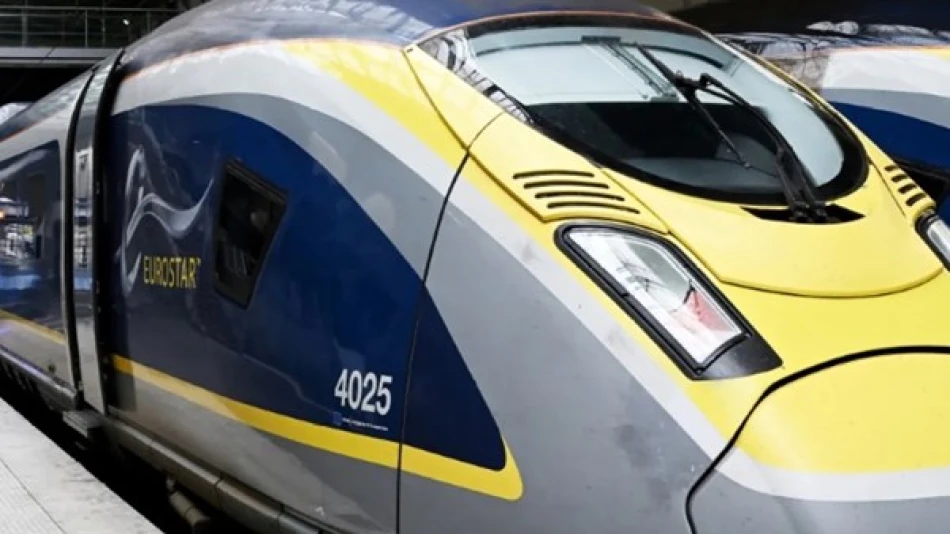
Electrical Glitch Disrupts Eurostar Trains: French Operators Cancel 16 Services
Eurostar Crisis: Major Power Failure Paralyzes Cross-Channel Rail Network
A catastrophic electrical failure brought Eurostar's high-speed rail network to its knees on Monday, canceling at least 16 trains and stranding thousands of passengers traveling between major European capitals. The disruption, which caused delays of up to 1 hour and 50 minutes, highlights the fragility of Europe's interconnected transport infrastructure and raises questions about backup systems for critical international routes.
The Scale of Disruption
French national railway company SNCF confirmed that maintenance teams were deployed to assess and repair what officials described as an "overhead line problem" between the northern French cities of Mussy and Longueuil. The technical failure created a domino effect across Eurostar's entire network, effectively severing rail connections between Britain and continental Europe.
By 7:00 PM local time (5:00 PM GMT), the situation remained dire. All services between Paris and London, Amsterdam, and Brussels were suspended. Two trains—one bound from Paris to Brussels and another traveling the reverse route—were forced to return to their departure stations after setting off in the morning, leaving passengers facing lengthy rebooking processes.
Infrastructure Vulnerabilities Exposed
This incident underscores a critical weakness in Europe's rail infrastructure: single points of failure that can paralyze entire international corridors. Unlike airlines, which can reroute through multiple airports, Eurostar operates through a limited number of fixed routes, making it particularly vulnerable to technical breakdowns.
The timing couldn't be worse for European rail ambitions. As governments across the continent push for reduced aviation emissions and promote train travel as a climate-friendly alternative, incidents like this remind travelers why many still prefer the flexibility of air transport despite environmental concerns.
Economic and Travel Impact
The disruption affects more than individual passengers. Business travelers, freight logistics, and the broader tourism economy between the UK and Europe all depend on reliable Eurostar services. With Brexit already complicating cross-channel movement, transport disruptions add another layer of friction to UK-EU connectivity.
SNCF's admission that it could not provide a timeline for service restoration by Monday afternoon signals that the technical problems may be more complex than initially assessed. This uncertainty forces travelers to seek alternative routes—likely through airlines or ferry services—potentially costing them hundreds of euros in rebooking fees.
Lessons for High-Speed Rail Networks
This breakdown offers sobering lessons for other high-speed rail projects worldwide. Countries investing billions in similar infrastructure, from California's troubled high-speed rail project to Asia's expanding bullet train networks, must consider robust redundancy systems and rapid repair capabilities.
While SNCF implemented alternative routing measures, the company's inability to quickly restore normal operations suggests that backup systems may be insufficient for handling major electrical failures. As rail networks become increasingly central to Europe's transport strategy, incidents like this could undermine public confidence in rail as a reliable alternative to aviation.
Most Viewed News

 Layla Al Mansoori
Layla Al Mansoori






